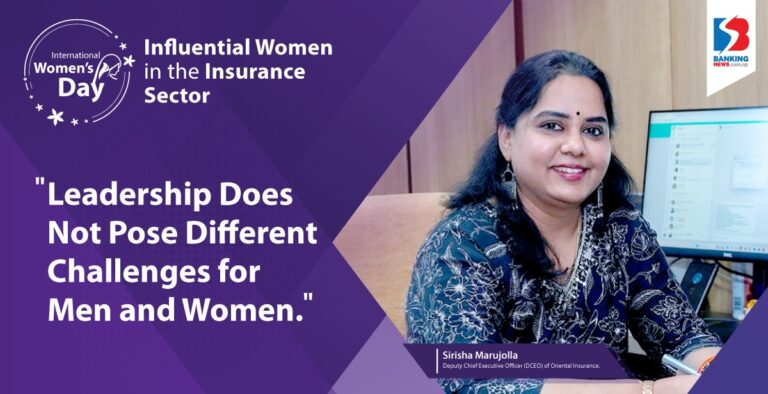Banking News – There was a time when the presence of women in the insurance industry was minimal. However, in recent years, female participation in the sector has been steadily increasing. Many women find the insurance industry attractive due to its job security, professional stability, and growth opportunities. “It is incorrect to assume that only women face challenges in the workplace,” says Sirisha Marujolla, the Deputy Chief Executive Officer (DCEO) of Oriental Insurance.
From Hyderabad to Nepal: A Journey into Leadership in Insurance
Born in Hyderabad, India, Sirisha was an exceptionally bright student. She was a college topper and initially pursued Chartered Accountancy (CA) before shifting her focus to a Master’s in Business Administration (MBA). Alongside her academics, she excelled in various extracurricular activities. Coming from a family of five, including her parents, a brother, and a sister, Sirisha was influenced by her father, who served as a Chief Manager at SBI Bank.
Transition from India to Nepal: Leading in Insurance
During her CA studies, Sirisha participated in multiple banking and insurance sector examinations. Her father’s career in banking gave her an early insight into the financial world. Despite receiving job offers from several banks in India, she chose to work for Oriental Insurance Nepal, a subsidiary of India’s Oriental Insurance Company, marking the beginning of her leadership journey in Nepal’s insurance industry.
She believes Nepalese insurance companies provide an excellent platform for women. “More than the country, language, or environment, what truly matters in work is integrity,” she said in an interview with Banking News. While Nepal’s insurance sector is smaller than India’s, she finds it more inclusive and welcoming.
“Leadership Challenges Are the Same for Men and Women”
Moving from India to Nepal and taking on a leadership role in insurance was not without its challenges, but Sirisha does not see them as gender-based. “The idea that women face more challenges than men is a misconception. It all depends on how one handles situations. Women are just as capable as men,” she asserts.
“It Is a Myth That Insurance Companies Do Not Pay Claims”
In her early days in the industry, she encountered widespread skepticism about insurance companies. Many people believed that insurers only collect premiums without honoring claims. However, through her experience, she realized that most of these allegations stem from misunderstandings. “Insurance companies operate under strict rules and regulations. Some claims are rejected due to policy non-compliance rather than malpractice,” she explains.
Reflecting on her career, she describes her time in the insurance sector as a rewarding experience. Being able to assist policyholders in their time of need gives her a deep sense of pride. When asked about the differences between the Indian and Nepalese insurance markets, she notes that while India’s market is larger, Nepal’s insurance sector has a promising future.



 About Us
About Us
Comment